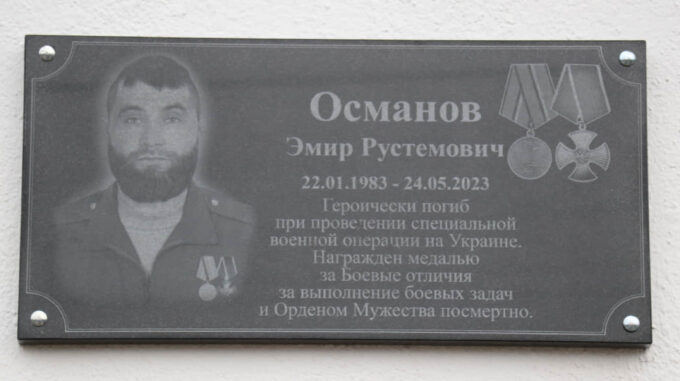In the occupied Crimea, a large-scale campaign is ongoing to renaming schools in honor of Russian “heroes of the special operation” and the Soviet army, which raises significant concerns among Ukrainian human rights activists and the international community

According to independent sources, this initiative is part of a broader policy aimed at shaping a propaganda narrative and ideological influence in the temporarily occupied peninsula. Information received from an anonymous Crimean human rights defender indicates that over 200 educational institutions in Crimea have already been renamed to honor Russian military personnel and Soviet history. Notably, active participation in this campaign has been recorded in regions under Russian control: Simferopol, Sudak, the Jankoy, Kirovsk, Rozdolne, and Chornomorske districts. Leading the effort is Simferopol, where local Russian authorities have already renamed 27 schools. Among them is School No. 38, now named after "SVO hero" Vladislav Dorokhin. In addition to changing names, educational institutions are actively installing memorial plaques, creating memorial corners, historic stands, and even small museums that promote Russian military myths and elevate the image of participants in the special operation. Local authorities use these measures to foster patriotism and pride in the "Russian army and heroes," aiming to strengthen ideological control over education in the region. It is important to note that as part of this program, "patriotic clubs" are being established at schools. According to the human rights defender, these are tools of propaganda and youth indoctrination in line with Russian militaristic values. They are designed to instill in students the idea of heroizing military aggression against Ukraine and to elevate the image of the "Russian defender," which poses risks not only for the educational process but also for the future of the region. Public activists and experts emphasize that this extensive ideological project will have a long-term impact on shaping the consciousness of the young generation in Crimea. They see it not just as administrative measures but as a deliberate policy by the Russian authorities aimed at a total rewriting of history, glorification of war, and idealization of Russian military personnel in the occupied region. According to them, this is part of a broader set of measures to strengthen control and eradicate Ukrainian identity in annexed Crimea, which contradicts international norms and the principles of educational freedom and historical truth.

